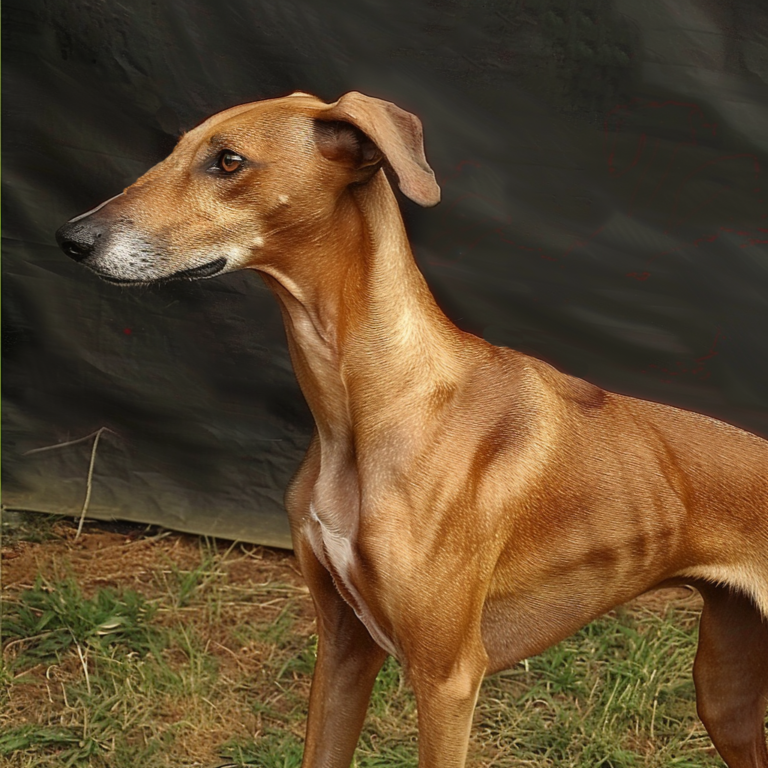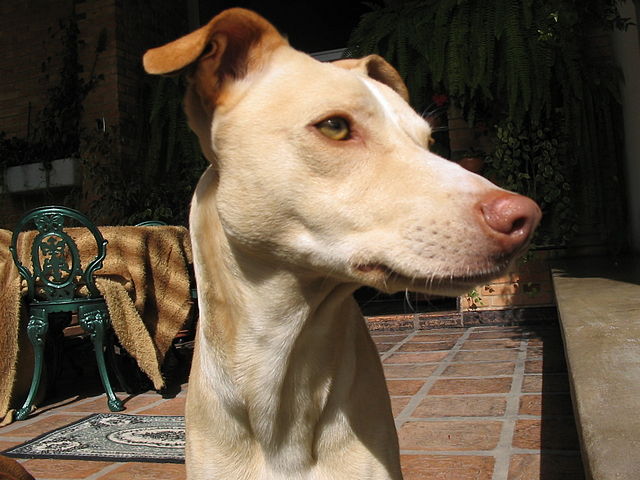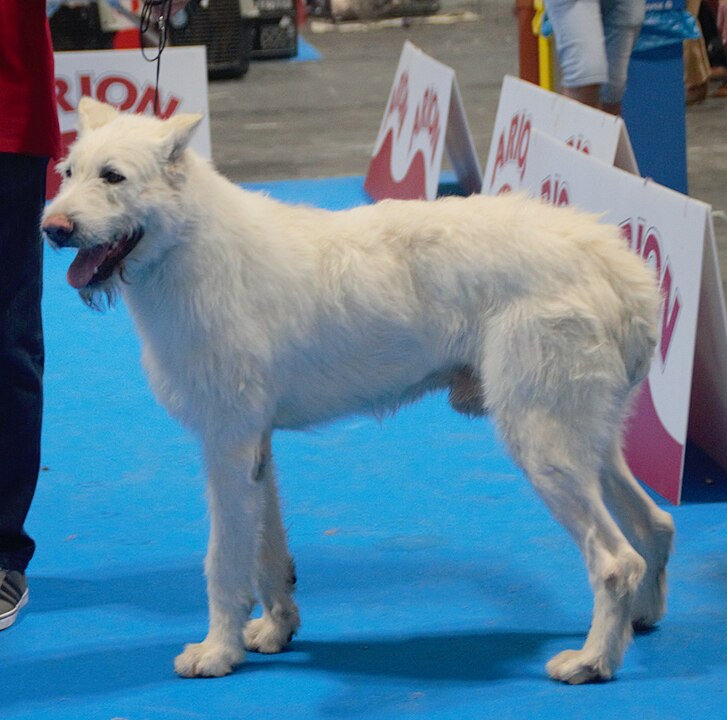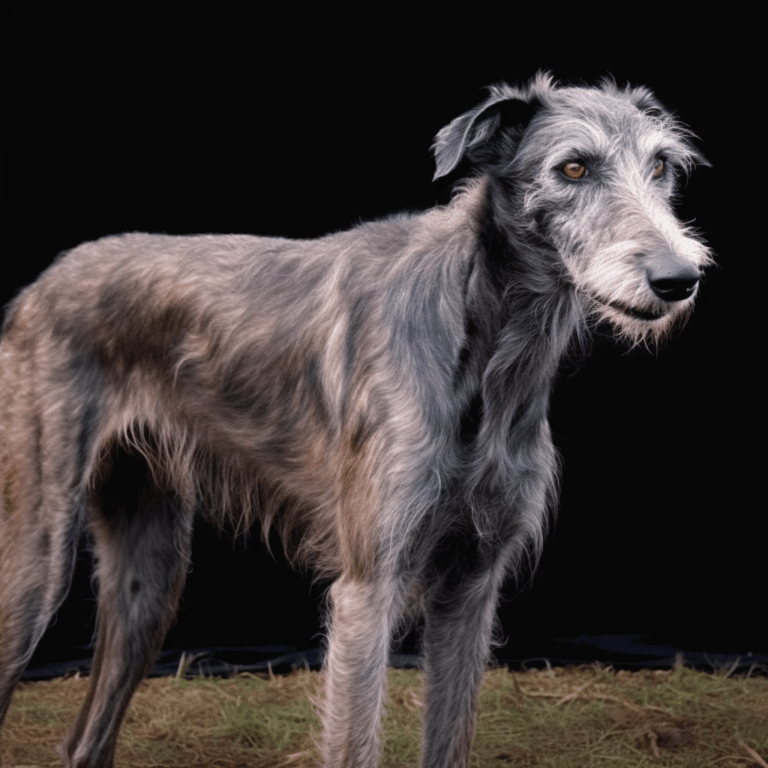The Saluki is an ancient sighthound breed originating in the middle east. While not a rare breed here in America, this elegant and aristocratic breed is still fairly uncommon. This is not necessarily a bad thing as they have very a very distinct personality and have unique needs. They are not the breed for everybody! A person who is interested in acquiring a Saluki would do well to educate themselves before buying – these dogs live for a long time and are therefore a big commitment. Fourteen years is average, with some reaching fifteen or even seventeen!
Like all sighthounds, Salukis have a very high prey drive. They will chase anything they see, especially if it is small and furry. If they can catch it (and they often can), they will kill it. Some owners might appreciate having their yard rid of rodents and small animals… other people might not want to find the bodies of dead critters in their yard. It all depends on the person’s perspective. The Saluki’s great speed, while awe-inspiring, also means that they are hard to catch if they get away (35 mph is their average speed). A fenced yard is a must! When not enclosed in a safe area, they need to be on a leash. They also do not do well in homes where people leave the front door wide open on a regular basis.
Despite these special considerations, Salukis are gentle and ever-faithful. While independent, they will love you until the day that they die. They show their affection in subtle ways and are not “in your face” about it, which means that they devoted without being obnoxious. Most enjoy just being near their people without being on top of their people. This means that they make better couch companions than oversized lap dogs. And yes – couches and beds are appreciated by Salukis. Creatures of comfort, they prefer soft beds to hard floors – especially if the area is raised up so they can “perch”.
Salukis are easy to groom and tend to keep themselves clean. They don’t normally have very much “doggie odor” and shed very little hair. Brushing them once a week is normally sufficient, although the feathers (long areas of the coat) should be brushed a few times a week. Salukis actually come in two varieties – feathered and smooth. Smooth dogs don’t have any long hair on their bodies and require even less work. A bath once a month or so will do, depending on the dog and his environment.
When it comes to training, many owners tend to get frustrated. Salukis can be trained, but they are very independent and will usually not respond in the same eager fashion as the herding or working breeds. Furthermore, they can be harder to teach reliable recalls when distractions (in the form of small running animals) are around. One word that is often used to describe the breed is “sensitive”. A trainer must keep this in mind and be careful not to frighten the dog in the course of training. While excessive force should never be used to train a dog, Salukis have lower thresholds to corrections than many other breeds. 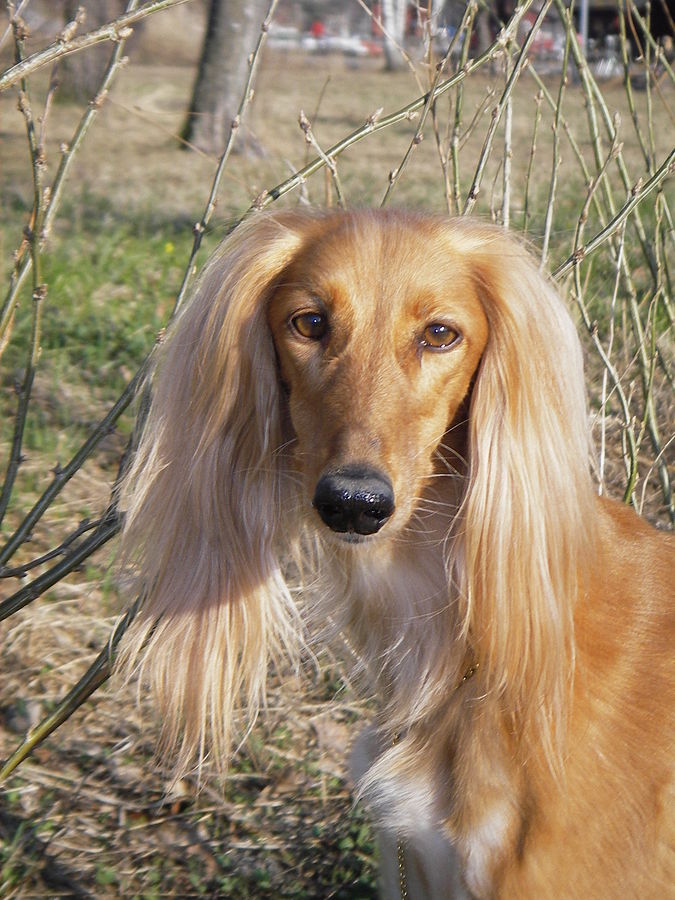
Crate training is recommended for every breed, but it must be stated that Salukis should not be crated all day, every day. While this is not ideal for any dog, Salukis really need to be able to stretch their legs out. This large breed is not very active indoors, but they are still good-sized dogs with long legs that need enough room to walk around and play. A studio apartment isn’t going to cut it. Salukis should ideally also have a fenced yard that they can run in, or a nearby fenced area that they can be taken to on a regular basis. In addition to this, they need to be given daily walks. With common sense, a crate can make a great temporary “den” however. Looking for the perfect crate for your dog? Check out the Petmate Vari Kennel to keep the Saluki comfortable and secure – https://amzn.to/3B3CUE6
Salukis can be sensitive to anesthesia and other drugs. It is very important that the vet have knowledge and experience with the breed, or at very least have knowledge of treating sighthounds. Otherwise, the breed is very healthy and hardy, which is why many of them live such a long lifespan. Cancer is one of the leading causes of death and usually happens because of advanced age. Being hit by a car is actually another leading cause of death, which is obviously not health related at all and shows how important it is to keep them in a fenced area!
This breed is very sensitive in nature and they need to live in quiet households that aren’t usually too busy. They prefer people who are as reserved and polite as they are. The same goes for strangers – if they are greeted by a loud or enthusiastic new person they might shy away. It is best if they come up to the stranger, rather than the stranger coming to them. Owners are highly recommended to socialize young puppies with as many people as possible to keep the dog from growing up excessively fearful. Salukis are not recommended for families with young children as they are often too sensitive to the rough handling of toddlers.
Salukis are very quiet and don’t bark often, although some will occasionally howl and sing for short periods of time. This means that they aren’t great watchdogs and they definitely are not natural guard dogs!
Salukis can be picky eaters although a healthy Saluki should still have visible ribs. Contrary to popular belief, some breeds are naturally very skinny! Their fast metabolisms served them well while living in the harsh deserts. They evolved to become fast sprinters and hunters, while not requiring tons of food to keep them in good hunting condition. They are listed in the Guinness Book of World Records as the fastest dog, so their lithe frame clearly helps rather than hinders!
Affiliate Disclaimer
As an Amazon Associate, I earn from qualifying purchases. This means that if you click on an affiliate link on this site and make a purchase, I may earn a small commission at no additional cost to you. Rest assured that I only link to products I have used, or use on a regular basis, and trust enough to recommend them to you!
